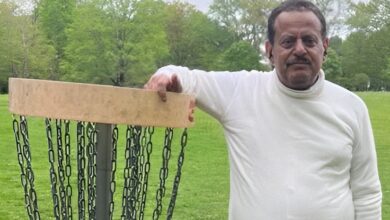Betrayal

Yemeni mp
Ahmed Saif Hashed
Parents shower their children with affection and love, surrounding them with care and attention. Generally, they do not refuse a request or plea if it is within their means. If something becomes impossible, they seek forgiveness and understanding.
This impression comes from my numerous observations of people’s lives, particularly the relationship between parents and their children, and the freedoms granted to them. The options available to me were extremely limited, a deprivation I experienced throughout my childhood, marked by disappointments that lingered from that time.
Our impressions of certain events are often subject to change due to various factors: age, awareness, and the level of maturity one possesses. Some of my perceptions may align with reality, while others could be exaggerated.
I feel a turmoil within me, a contradiction intensifying in my depths. Perhaps I am overtaken by the need to defend my father, as I speak of his sternness, attempting to justify his actions. I might be trying to soften my impression of a reality I lived, seeking a sense of fairness or offering him excuses, especially in light of his absence.
My father was strict and difficult in temperament, and I once thought his heart was made of flint. This image, which has lingered in my memory, may have done him an injustice. As I grew older and became a father myself, I matured and removed the exaggeration from this dark portrait. I came to understand many things and assumed that no father could truly hate his child. I sought excuses for many of his actions, even as I write about them now, colored by the pain of my past.
It pained me that fathers do not prevent their children from attending distant festivities, weddings, mourning gatherings, markets, or distant journeys. My father not only objected but was also willing to act foolishly if I insisted on attending or tried to impose my will against his decision.
Perhaps my father’s actions stemmed from a fear for my safety, or perhaps it was his philosophy on the importance of toughness in upbringing. Maybe I was the one who angered him without intending to. The challenge stirred him, and he would become furious at the slightest hint of defiance or rebellion; at times, merely his assumptions were enough, without the need for investigation.
* * *
“Al-Khader,” a righteous figure whose celebration I had never attended or visited, was a source of many tales I heard from children returning from his festival. They recounted these stories with joy and excitement, as if they had ventured to another planet or visited the moon! I listened in astonishment, filled with regret for not having experienced what they had, feeling deprived of something fascinating and worthy of wonder.
When they shared their stories, they competed in recounting details, often embellishing them. I was the only one who felt pain squeezing my heart and bitterness stabbing me, as I was forbidden from attending, and a visit to him remained a distant hope that was often dashed.
At the festival, people come from all directions. The faces of children shine with joy and delight. All faces converge in celebration, and trade is at its peak, offering unique items available only on such occasions. Scenes that do not recur in the place except once a year. Missing even one feels like a year of wasted time, a lost opportunity that you had long awaited, and you must wait an entire year to try your luck again. If you fail once more, you sense your life slipping away, hope diminishing, and disappointment engulfing you, compounded by a heavy sadness.
The banners and their vivid colors captivate the heart and eye, adding distinctiveness and majesty to the occasion. A spirituality envelops you in certain places and scenes. Even the exaggerations at the festivals are alluring and enchanting. The miracles attributed to these celebrations sometimes exceed imagination. You are not required to seek them out; instead, you should express wonder at them and believe in them, however they may appear, perhaps even embellishing them into something fantastical, filled with magic and captivating joy.
The “madmen” you see bring astonishment and wonder. Many tales compel you to desire to witness them a thousand times without hesitation or fatigue, immersing yourself in their astonishment and details with all your spirit and senses.You enjoy it as if you are visiting another world teeming with marvels, leaving an indelible impression of wonder.
* * *
To witness these scenes, I prayed for more than a week, asking God to soften my father’s heart so I could attend this joyful festival. Instead of praying two units of prayer, I prayed a hundred; instead of thanking God and seeking forgiveness a hundred times, I did so thousands, hoping that God would make my father gentle and allow me to attend Al-Khidr’s festival this year, an event I had long dreamed of and awaited, postponed from year to year.
Yet, despite my prayers and supplications, fate betrayed me, and my disappointment was vast. My father’s heart remained hard and unyielding; it did not soften. My mother also made her efforts for a week, but she too failed and was met with disappointment in her attempts to gain my father’s approval. When my father becomes resolute and stubborn, perhaps changing his mind requires destiny, or at least that is what I imagined.
No amount of prayer, pleading, or charm seemed to work with my father. The dark image that formed in my childhood consciousness over the years portrayed a reality that sometimes may have been exaggerated or not entirely accurate.
* * *
And speaking of things that remind one of others, what the authorities do today compels me to pray for my father day and night, thanking God that he did not witness such an era, an era whose heavy chains press upon my weary soul. An era that hurries us back to the first century of Hijra, accompanied by pools of blood, tears, and spoils, until we became the spoils of war and conquest, as the shield turned and faced away from the future.
I love my father because I am a part of him. I learned from his upbringing to be as stubborn as I can, but I direct that stubbornness toward what is good, noble, and of high standing, filled with a passion for a future I seek. I will not succumb to oppression, and it is acceptable if I bend one day to a storm!
In conclusion, one school of psychoanalysis attributes forms of rebellion against authority to a struggle against paternal authority, an explosion of a deep-seated desire to undermine the father as a symbol of oppression and denial.
* * *






